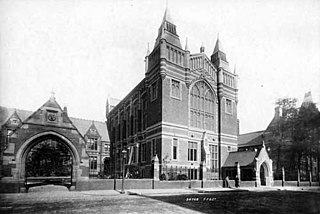Judgment
Roskill J. held that even though there was no chance of IDC getting the contract, if they had been told they would not have released him. So he was held accountable for the benefits he received. He rejected the argument that because he made it clear in his discussions with the Gas Board that he was speaking in a private capacity, Mr. Cooley was under no fiduciary duty. He had ‘one capacity and one capacity only in which he was carrying on business at that time. That capacity was as managing director of the plaintiffs.’ All information which came to him should have been passed on.
Roskill J, quoted, Parker v. MacKenna (1874) 10 Ch.App. 96, James L.J. said, at p. 124:
“I do not think it is necessary, but it appears to me very important, that we should concur in laying down again and again the general principle that in this court no agent in the course of his agency, in the matter of his agency, can be allowed to make any profit without the knowledge and consent of his principal; that that rule is an inflexible rule, and must be applied inexorably by this court, which is not entitled, in my judgment, to receive evidence, or suggestion, or argument as to whether the principal did or did not suffer any injury in fact by reason of the dealing of the agent; for the safety of mankind requires that no agent shall be able to put his principal to the danger of such an inquiry as that.”
Throughout the last century, and also in the present century, courts of the highest authority have always strictly applied this rule.
The law of agency is an area of commercial law dealing with a set of contractual, quasi-contractual and non-contractual fiduciary relationships that involve a person, called the agent, that is authorized to act on behalf of another to create legal relations with a third party. Succinctly, it may be referred to as the equal relationship between a principal and an agent whereby the principal, expressly or implicitly, authorizes the agent to work under their control and on their behalf. The agent is, thus, required to negotiate on behalf of the principal or bring them and third parties into contractual relationship. This branch of law separates and regulates the relationships between:

A fiduciary is a person who holds a legal or ethical relationship of trust with one or more other parties. Typically, a fiduciary prudently takes care of money or other assets for another person. One party, for example, a corporate trust company or the trust department of a bank, acts in a fiduciary capacity to another party, who, for example, has entrusted funds to the fiduciary for safekeeping or investment. Likewise, financial advisers, financial planners, and asset managers, including managers of pension plans, endowments, and other tax-exempt assets, are considered fiduciaries under applicable statutes and laws. In a fiduciary relationship, one person, in a position of vulnerability, justifiably vests confidence, good faith, reliance, and trust in another whose aid, advice, or protection is sought in some matter. In such a relation, good conscience requires the fiduciary to act at all times for the sole benefit and interest of the one who trusts.
A fiduciary is someone who has undertaken to act for and on behalf of another in a particular matter in circumstances which give rise to a relationship of trust and confidence.
In commercial law, a principal is a person, legal or natural, who authorizes an agent to act to create one or more legal relationships with a third party. This branch of law is called agency and relies on the common law proposition qui facit per alium, facit per se.
Bristol and West Building Society v Mothew [1996] EWCA Civ 533 is a leading English fiduciary law and professional negligence case, concerning a solicitor's duty of care and skill, and the nature of fiduciary duties. The case is globally cited for its definition of a fiduciary and the circumstances in which a fiduciary relationship arises.

Keech v Sandford[1726] EWHC J76 is a foundational case, deriving from English trusts law, on the fiduciary duty of loyalty. It concerns the law of trusts and has affected much of the thinking on directors' duties in company law. It holds that a trustee owes a strict duty of loyalty so that there can never be a possibility of any conflict of interest.

Boardman v Phipps [1966] UKHL 2 is a landmark English trusts law case concerning the duty of loyalty and the duty to avoid conflicts of interest.

Foster Bryant Surveying Ltd v Bryant[2007] EWCA Civ 200 is a 2007 UK company law case, concerning the fiduciary duty of directors to avoid conflicts of interest. It follows some considerable unrest in the courts about the strictness of the law relating to taking corporate opportunities.
Directors' duties are a series of statutory, common law and equitable obligations owed primarily by members of the board of directors to the corporation that employs them. It is a central part of corporate law and corporate governance. Directors' duties are analogous to duties owed by trustees to beneficiaries, and by agents to principals.

Boulting v Association of Cinematograph, Television and Allied Technicians [1963] 2 QB 606 is a UK labour law and UK company law case from the Court of Appeal. It covers the issue of what it means to act in the best interests of the company, relevant under section 172 of the Companies Act 2006.

Aberdeen Railway Co v Blaikie Brothers (1854) 1 Paterson 394 is a UK company law case. It concerns the fiduciary duty of loyalty, and in particular, the duty not to engage in self-dealing. It laid down a basic rule that if a director had an interest in a corporate transaction, the transaction is voidable at the company's will, and it is the duty of directors to avoid any possibility of a conflict of interest.

Bray v Ford [1896] AC 44 is an English defamation law case, which also concerns some principles of conflict of interest relevant for trusts and company law.

Bhullar v Bhullar[2003] EWCA Civ 424, 2 BCLC 241 is a leading UK company law case on the principle that directors must avoid any possibility of a conflict of interest, particular relating to corporate opportunities. It was not decided under, but is relevant to, section 175 of the Companies Act 2006.

Guinness plc v Saunders [1989] UKHL 2 is a UK company law case, regarding the power of the company to pay directors. It required that whatever rules exist for payment in the company's articles, they must be strictly observed.
Agency in English law is the component of UK commercial law that deals with the application of agency law in the United Kingdom, and forms a core set of rules necessary for the smooth functioning of business.

CMS Dolphin Ltd v Simonet [2001] EWHC Ch 415 is a UK company law case concerning directors' duties.
Directors' duties in the United Kingdom bind anybody who is formally appointed to the board of directors of a UK company.

Oldham v Kyrris[2003] EWCA Civ 1506 is a UK insolvency law case concerning the administration procedure when a company is unable to repay its debts.

FHR European Ventures LLP v Cedar Capital Partners LLC[2014] UKSC 45 is a landmark decision of the United Kingdom Supreme Court which holds that a bribe or secret commission accepted by an agent is held on trust for his principal. In so ruling, the Court partially overruled Sinclair Investments (UK) Ltd v Versailles Trade Finance Ltd in favour of The Attorney General for Hong Kong v Reid (UKPC), a ruling from the Judicial Committee of the Privy Council on appeal from New Zealand.

Eclairs Group Ltd v JKX Oil & Gas plc[2015] UKSC 71 was a decision of the United Kingdom Supreme Court relating to the exercise of directors' powers for a proper purpose under English company law.
This page is based on this
Wikipedia article Text is available under the
CC BY-SA 4.0 license; additional terms may apply.
Images, videos and audio are available under their respective licenses.












